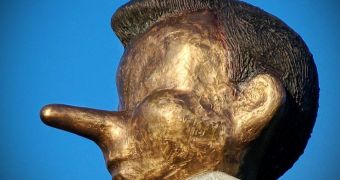With the killing of terrorist leader Osama bin Laden, the United States now again finds itself in the crosshairs of most terrorist organizations out there. Under such circumstances, figuring out when someone is lying is critical, and this is precisely what a new study helps people do.
The findings it presents could be especially useful at airports, subway stations or other public space, which are targets that terrorists generally prefer. It's not a good idea to be over-suspicious either, since nearly all citizens have good intentions, and must not be handled as criminals.
In a new study, expert R. Edward Geiselman, who is a professor of psychology at the University of California in Los Angeles (UCLA), looks at how lies and deception can be detected with ease.
His own work is accompanied by an extensive review of more than 60 research papers that appeared in this field of research thus far. During his career, the expert worked with the FBI, the DHS, the LAPD, the Marines, and international agencies, among others.
In a paper published in the April issue of the American Journal of Forensic Psychiatry, he and former UCLA undergraduates Sandra Elmgren, Chris Green and Ida Rystad analyze deception thoroughly, and provide their own opinions and commentaries on the issue.
Counter-intuitively, deception is usually accompanied by a scarcity of words, although one would expect those who lie to talk a lot, and provide an elaborate story, Science Blog reports. Related to this, liars always feel it's appropriate to justify their lies, even when not prompted to do so.
“They try to read you to see if you are buying their story,” Geiselman says of another indicative factor. The listener’s reaction is very important to liars. Sometimes, these individuals repeat the question, in order to give themselves enough time to think of a plausible answer.
Grooming-type behaviors are also common among deceptive people, the expert adds. That is to say, people who lie tend to play with their hair and nails more, and also to alter the speed at which they speak, within the same sentence.
“Truthful people will not dramatically alter their speech rate within a single sentence,” the UCLA expert explains. At times, liars will retract a sentence mid-answer, and will not bother to finish responding to a question being asked.
“People can learn to perform better at detecting deception. However, police departments usually do not provide more than a day of training for their detectives, if that, and the available research shows that you can’t improve much in just a day,” Geiselman explains.

 14 DAY TRIAL //
14 DAY TRIAL //